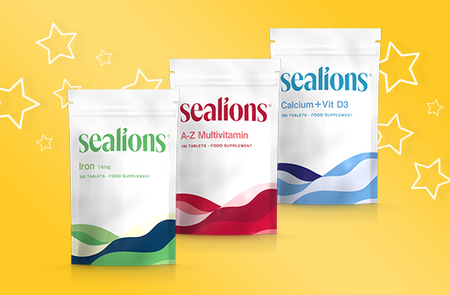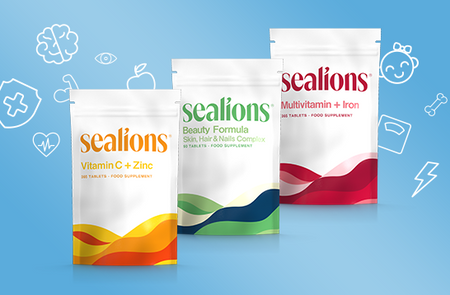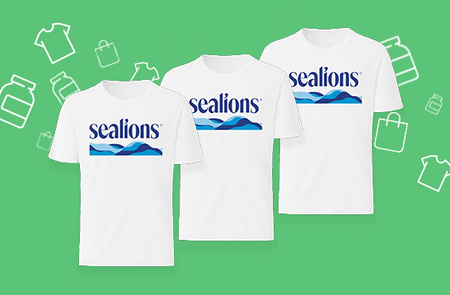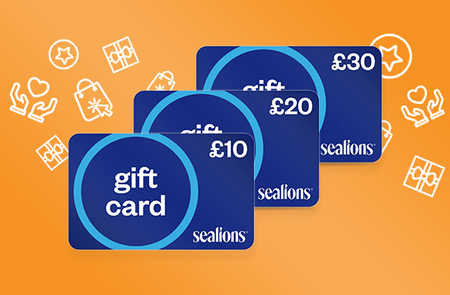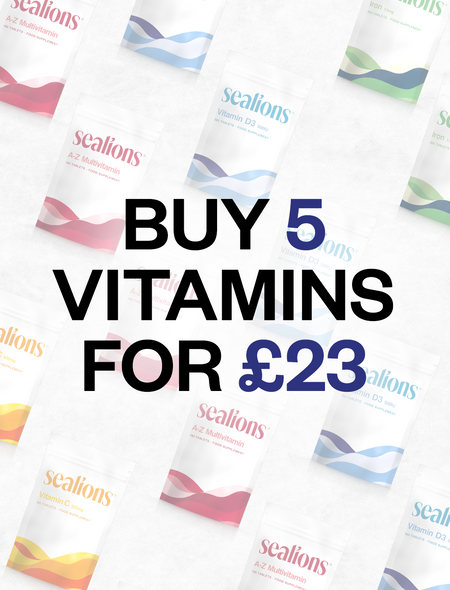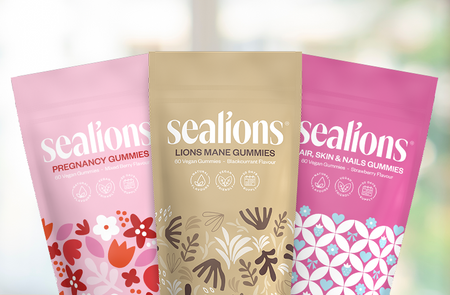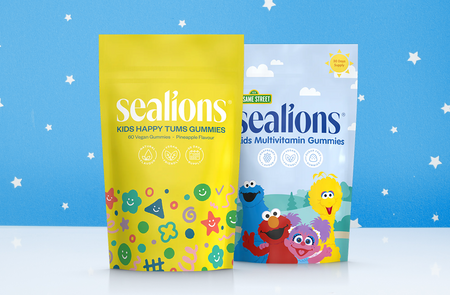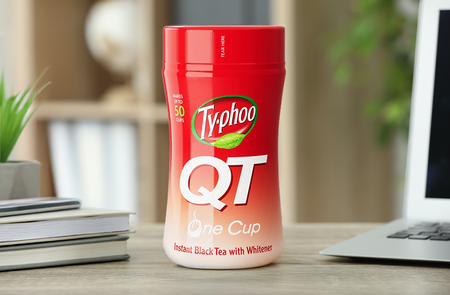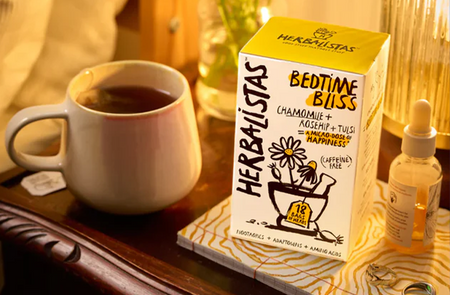
Vitamins and Viruses
The last year or two have been incredibly strange. You can tell, because there’s an argument about what the “word of the year” should be. Some people are saying “lockdown,” others “self-isolation” and there’s a big group of supporters for “social distancing.”
Read between the lines, and you’ll see that there’s one standout word that’s defined 2020 and beyond, more than any other. Coronavirus. Covid-19 has changed everything. The way we work (goodbye commute, hello home office), the way we eat (takeaways are in, eating out is, well, out), the way we socialise (anyone for a Zoom quiz?). And it’s making us think a lot more about our health.
For us, that means lots of questions from people like you about whether or not vitamins can make you resistant to – or even cure – viruses.
Now, your daily supplement isn’t a magic bullet that’ll instantly cure Covid-19. But researchers have looked into who’s getting sick from all kinds of viruses, from the flu to the coronavirus, and they’ve learned that one thing is definitely true…
The Healthier We Are, The More Resistant We Are to Viruses
It makes sense, doesn’t it?
If your body and mind are healthy, you can still catch a virus and get ill, but you probably won’t be affected as badly as if you were unhealthy to begin with. Maybe poor health could be issues with your weight. Maybe it could be pre-existing conditions or illnesses. Maybe it’s stress and poor sleeping habits. Or maybe your poor health could be linked to a lack of the nutrients that keep your body healthy. A lack of essential vitamins and minerals.
Medical research shows that large numbers of us aren’t getting enough vitamins and minerals. Nearly one in five people in their 20s aren’t getting enough micronutrients. Younger women are at risk of B vitamin and calcium deficiencies. And a quarter of British women don’t get enough iron.
If we’re lacking in vitamins and minerals, we’re not as healthy as we could be. If we’re not as healthy as we could be, we can’t resist viruses as well as we could. And if we can’t resist viruses, we’re going to get sicker than we should be.
Vitamin supplements aren’t the magic bullet to cure the Coronavirus, but a lack of vitamins could very well be one reason that some people suffer far more with viruses like Covid and the flu than others do.
Can Vitamin Supplements Help Fight Off Viruses?
Experts at the University of Maryland Medical System seem to think so. They believe that the key to resisting viruses is strengthening and boosting our immune systems. And that the best way to do this is to adopt healthier habits.
They suggest doing eight simple things to improve your immune system:
- Exercise regularly. 150 minutes of moderate exercise (such as a brisk walk) will help strengthen your immune responses
- Maintain a healthy weight. Keeping your BMI below 25 keeps your immune system in peak condition
- Get enough sleep. Go to bed at the same time every night, and get at least eight hours
- Reduce stress. It’s easier said than done in a global pandemic, but try to reduce your stress with meditation, exercise and hobbies
- Stop smoking. If you smoke, quit. Especially because smoking depletes the amount of Vitamin C in your body
- Watch your alcohol intake. Alcohol can suppress your immune system, so don’t drink to excess
- Wash your hands and practice social distancing. Standard advice during this Coronavirus outbreak
- Get the right nutrition. That means getting enough micronutrients, vitamins and minerals, with a balanced diet and - where needed – the right vitamin and mineral supplements.
The school’s director of Integrative Medicine, Chris D’Adamo PhD, goes on to recommend a number of supplements that you should consider adding to your diet in order to boost your immune system: Vitamins C, D and A, Zinc and Selenium. He also recommends adding raw honey, garlic and probiotics to your diet, as these can all help strengthen your immune system.
But is Dr. D’Adamo right? Are these really the best supplements to choose to strengthen your immune system and help you fight off viruses?
Let’s have a look at how these micronutrient supplements – and others – work to boost your body’s natural defences.
Which Vitamins and Minerals Have an Effect on Viruses?
It’s important to remember that no part of your body works alone. Your immune system can’t work properly if other organs and systems are lacking in nutrients, so it’s important to keep your overall health as good as possible.
Getting enough Vitamin D should boost your immune system, but that won’t be of much use if you’re suffering from a B Vitamin deficiency!
That said, certain micronutrients are good for your immune health in particular. These include:
Vitamin A: This micronutrient helps cells all over your body to grow – and that includes your immune cells. Think of a Vitamin A supplement as a recruitment drive for all of your body’s little soldiers – the ones that’ll fight off infections and viruses.
Vitamin C: It’s almost common knowledge that we need Vitamin C if we have a virus. That’s why we reach for lemon and orange drinks when we’re suffering with a cold. But it’s not just folk medicine. Nobel Prize-winner Linus Pauling was a champion of Vitamin C, and inspired research which has shown this micronutrient can help you to recover more quickly from viral and respiratory infections. Chinese doctors are even administering Vitamin C drips to patients with Coronavirus!
Vitamin D: While Vitamin D supplements are mostly taken as by people looking to boost their skin, muscle and bone health, research has shown that this micronutrient is used by the immune system to build the proteins that kill viruses and bacteria.
Selenium: Selenium, which Dr. D’Amado recommends, is a key nutrient used by your immune system, as well as being a powerful antioxidant which strengthens your natural defences against bacteria and viruses.
Potassium: Some viruses – Covid included – have an effect on your blood pressure. Potassium is one of the micronutrients that plays a key role in your blood pressure remaining stable and safe, so adding a little more of this vital nutrient to your diet can be beneficial to your health.
Zinc: Decades of research from all over the world shows that people who take a regular Zinc supplement see a 20%-40% reduction in the length of colds that they suffer from. If you choose a Zinc supplement, keep it to less than 40mg per day (unless advised otherwise by a professional), or else you could see it starting to blunt your immune responses.
The Elephant in the Room: Can Vitamin Supplements Prevent You Getting Covid-19?
We’ve heard from doctors, Nobel Prize-winners and the wisdom of our grandmothers, and they all point towards vitamin supplements boosting your immune system and helping you more effectively fight off diseases and viruses.
But that’s not what we’re being asked. Many of you are asking us if vitamin supplements can stop you from catching Covid in the first place.
The answer to that, sadly, is no.
Vitamins can improve your overall health and wellbeing. They can strengthen your immune responses and help you fight off viruses.
But no daily supplement can stop you catching a virus to begin with.
The only ways to do that are the ways the NHS recommends.
- Washing your hands regularly for at least 60 seconds
- Practicing 1m social distancing in public
- Wearing a mask when in an enclosed space
- Steering clear of anyone who might be infected
If you do this, your chances of catching a virus are limited. But if you do catch something, you’ll want your immune system to be as strong as possible. And that means giving your body the tools, the fuel, the micronutrients it needs to build a robust set of defences.
Starting with Supplements
After reading this, you might be ready to give supplements a try, to boost your immune system and help your body fight off viruses. That’s a smart choice, and in our online store you’ll find a huge range of affordable vitamins and supplements to try.
But if you’re still confused about what your body needs – and why – we’ve prepared a beginner’s guide to vitamins and supplements. You can find it right here.
Read a beginner’s guide to vitamins and supplements
If you’re already familiar with supplements, and you’re ready to add immune-boosting micronutrients like Vitamins A, C and D, Zinc and Potassium, then head to our online store to get started.
And as always, here’s to your good health!
Tagged:

